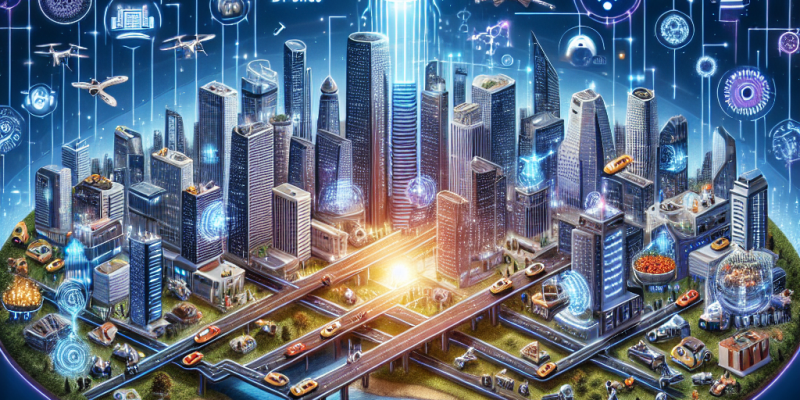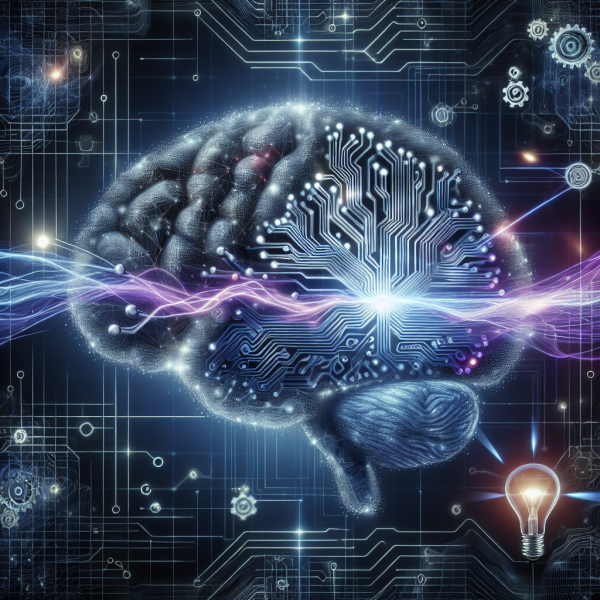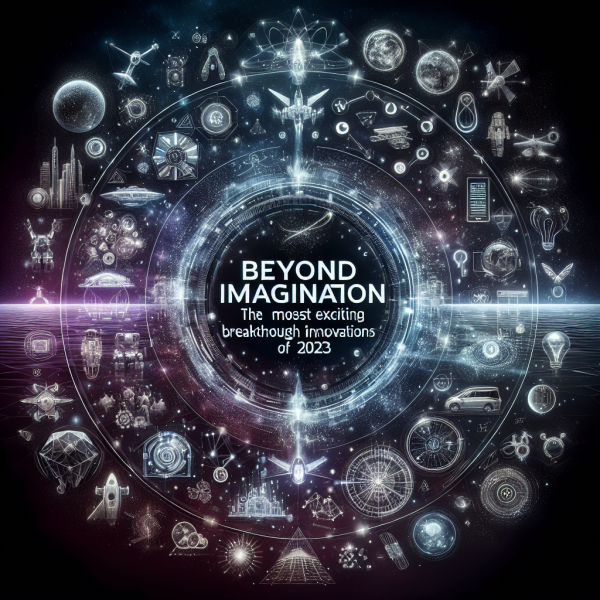AI Revolution: How Artificial Intelligence is Redefining Industries in 2024

AI Revolution: How Artificial Intelligence is Redefining Industries in 2024
As we progress through 2024, the impact of artificial intelligence (AI) on various industries has become profound and transformative. From healthcare to finance, and from manufacturing to retail, AI is not merely a tool but a catalyst for innovation and efficiency. This article explores how AI is reshaping industries, the challenges associated with its integration, and the future prospects that lie ahead.
The Current State of AI in 2024
AI technologies have advanced dramatically in recent years, powered by significant improvements in machine learning algorithms and computing power. Natural language processing (NLP), computer vision, and robotics have matured, enabling businesses to deploy AI solutions that were once the realm of science fiction. The widespread adoption of cloud computing and the availability of large datasets have further accelerated this trend, allowing organizations to harness AI without the need for extensive in-house infrastructure.
Redefining Healthcare
In the healthcare industry, AI is revolutionizing diagnosis and treatment. Advanced algorithms analyze medical images with a precision that rivals experienced radiologists. AI-driven predictive analytics tools are enabling early detection of diseases, allowing for timely interventions. Moreover, telemedicine platforms powered by AI chatbots enhance patient engagement by providing 24/7 assistance, answering queries, and managing appointments.
Personalized medicine is another area where AI is making strides. By leveraging genetic data and machine learning, healthcare providers can tailor treatment plans to the individual patient, improving outcomes and reducing side effects. The integration of AI in drug discovery processes has accelerated the development of new therapies, significantly cutting down the time and cost associated with bringing new medications to market.
Transforming Finance
The finance sector has embraced AI for its ability to analyze vast datasets and identify patterns that are imperceptible to humans. Fraud detection systems utilize machine learning to assess transaction behaviors in real-time, flagging anomalies and protecting consumers and institutions alike. Robo-advisors use algorithms to manage investment portfolios, offering personalized financial advice at lower costs than traditional financial advisors.
Moreover, AI is facilitating smarter lending decisions. By analyzing alternative data sources, AI can assess creditworthiness in ways that were previously not possible, expanding access to capital for underserved populations. As the regulatory landscape evolves, financial institutions are increasingly relying on AI tools for compliance and risk management, streamlining operations while ensuring transparency.
Overhauling Manufacturing
In the manufacturing sector, AI is leading the charge towards Industry 4.0, characterized by automation and data exchange in manufacturing technologies. Predictive maintenance powered by AI helps companies anticipate equipment failures before they occur, maximizing uptime and reducing operational costs. Smart factories utilize AI to optimize production processes, leading to improved efficiency and reduced waste.
Robotics and AI are also at the forefront of supply chain management. AI algorithms can predict demand fluctuations, enabling manufacturers to adjust production schedules dynamically. This agility is crucial in a world where consumer preferences can change rapidly, allowing companies to remain competitive.
Revolutionizing Retail
Retailers are leveraging AI to enhance customer experiences and streamline operations. Personalized shopping experiences, driven by machine learning algorithms that analyze consumer behavior, have become the norm. AI-powered recommendation engines suggest products tailored to individual preferences, increasing sales and customer satisfaction.
Inventory management has also seen a significant upgrade due to AI technologies. Predictive analytics can forecast demand more accurately, reducing overstock and stockouts. Chatbots and virtual assistants are improving customer service by providing immediate responses to inquiries, enhancing engagement without overburdening human staff.
Challenges and Considerations
Despite its transformative potential, the integration of AI into various industries is not without challenges. Ethical concerns surrounding data privacy, algorithmic bias, and employment disruptions must be addressed as organizations deploy AI solutions. There is a growing need for transparent AI practices and frameworks to ensure that AI technologies are used responsibly and equitably.
Moreover, the skills gap poses a significant challenge. As industries embrace AI, there is a pressing need to equip the workforce with the necessary skills to work alongside AI technologies. Educational institutions and organizations must collaborate to create training programs that prepare the next generation of workers for an AI-enabled future.
The Future of AI-Driven Industries
As we look ahead, the potential for AI to redefine industries is enormous. The technology will continue to evolve, leading to even greater efficiencies and innovations. Collaborative robots, or cobots, are expected to work alongside humans, further blurring the lines between human capabilities and machine efficiencies.
In conclusion, the AI revolution is well underway in 2024, reshaping industries across the globe. As organizations harness the transformative power of AI, the key will be to navigate the associated challenges thoughtfully, ensuring that the benefits of this technology are realized inclusively and ethically. The future promises a new era of innovation—one where AI not only enhances productivity but also enriches human lives.














